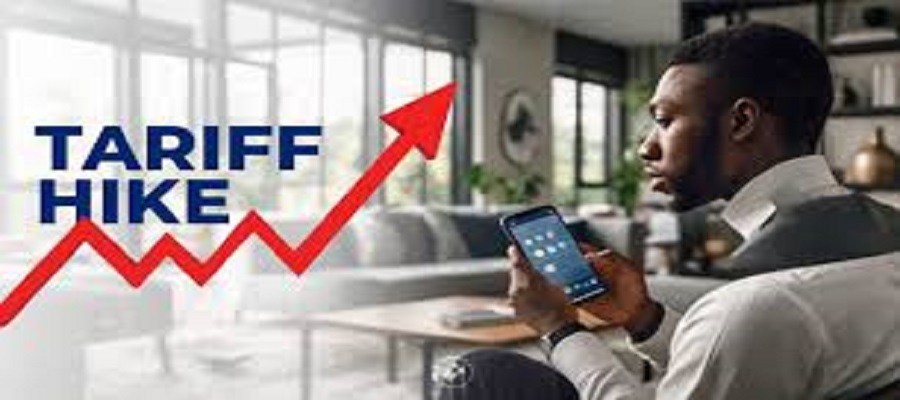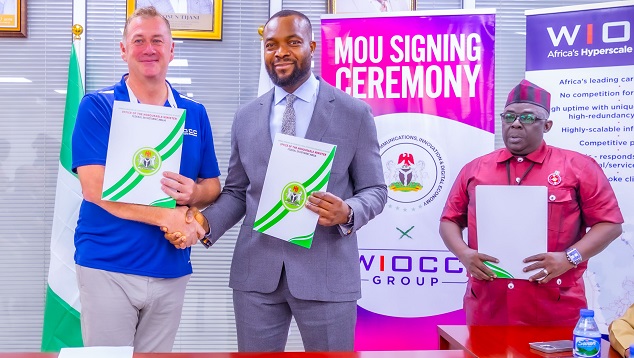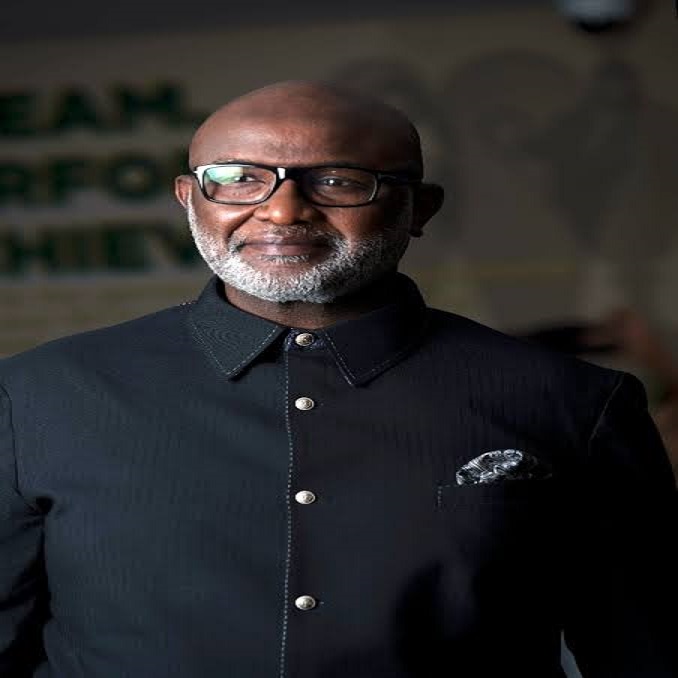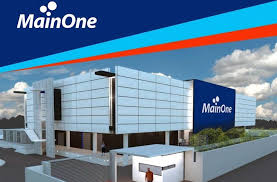Telecom
Huawei Supports Advanced Sharing of C-band Spectrum in Africa

Chinese telecommunications firm Huawei Technologies has voiced its support of advanced sharing of C-band (3400-3800MHz) spectrum in key regions on the continent.
The technology ICT solutions provider participated in the 2015 Sub-Sahara Spectrum Management Conference, held in Johannesburg.
The Conference attracted high-level stakeholders and decision makers from Sub-Saharan Africa and beyond, to discuss topical issues relating to the management and co-ordination of spectrum policy within the region.
In a media statement Huawei confirmed its support of efforts to secure the availability of adequate spectrum for wireless broadband services relying on 4G technology, as well as for future 5G technologies.
“Voice and mobile Internet connectivity have improved rapidly in most urban areas in Africa. Sub-Saharan Africa (SSA) has been the fastest growing region over the past five years in terms of both unique subscribers and connections. Consumers, governments, and businesses across SSA are rapidly adopting mobile, not only as a basic communication tool, but also to access information and a growing range of new applications and services
However, the “digital divide” is still at its most extreme in Africa. In absolute terms, mobile broadband connectivity is still at a very early stage of development in comparison to other regions of the world. ,” the statement read.
The argument put forward at the Conference was that without the smart management of spectrum, mobile networks will struggle to meet growing data demands resulting in slower speeds and higher prices, thus hindering Africa from experiencing the full socio-economic benefits of mobile.
There are 8 months remaining until the 2015 World Radio Conference where key decisions will be made impacting the future of mobile broadband over the next year.
The global debate has now focused on potential bands for mobile allocations and IMT identifications: UHF band (470-694 MHz), L-Band 1350-1518 MHz, 2700-2900 MHz band, and C-Band (3400-3800 MHz and 3800-4200 MHz).
With the tremendous increase in end user mobile data traffic, Huawei has predicted that the 3400-3800 MHz range will play an increasing role in the evolution of LTE-Advanced, thanks to the unique amount of contiguous spectrum available (<6GHz) that will allow delivery of a unique end user mobile broadband experience (i.e. up to 1Gbps peak).
Making these four bands available for mobile services, including the 3400-3800 MHz band, does not mandate a change of use for the spectrum at a national level, but instead it gives countries the freedom to take the decision to make additional spectrum available for mobile broadband when demand from the market and society heightens.
In the meantime, countries may want to use, in some cases, more advanced approaches to spectrum sharing between different services as a means of managing spectrum congestion and enabling innovation, while preserving current usage.
During his address to conference delegates, Alessandro Casagni, head of the European Wireless Regulatory Policy at Huawei, elaborated on how more advanced approaches to spectrum sharing may enable mobile broadband innovation while preserving current usage.
Such approaches for spectrum sharing, should be assessed at national level, accounting for the latest technologies (including the availability of LTE-Advanced small cells), while ensuring the continued operation of existing services. The regulations at a national level should be aimed at allowing the introduction of IMT networks with the least prescriptive sharing regulation necessary to protect existing users while maximizing efficient use of spectrum.
The latest mobile network topologies such as small cells, within LTE-Advanced Heterogeneous Networks (HETNETs), and the exploitation of innovative spectrum management approaches such as “database assisted spectrum access”, are now providing additional opportunities for sharing leading to more efficient utilisation of spectrum.
Telecom
NLC Announces Nationwide Boycott over Telecom Hike

Nigeria Labour Congress (NLC), an umbrella group for trade unions, has announced that Nigerians are planning a statewide boycott of telecom services in protest of the Nigerian Communications Commission’s (NCC) recent approval of a 50% increase in phone costs.

Following carriers’ demands for cost-reflective charges amid challenging economic conditions, the NCC approved a 50% increase in telephone tariffs on Monday.
This hike, which fell short of the 100 percent increase that telcos requested, caused the average cost of calls to go from N11 to N16.5 per minute, the cost of 1GB of data to go from N287.5/GB to N431.25, and the price of SMS to go from N4 to N6.
“The adjustment, capped at a maximum of 50 percent of current tariffs, though lower than the over 100 percent requested by some network operators, was arrived at taking into account ongoing industry reforms that will positively influence sustainability,” the commission said.
In a statement issued , Joe Ajaero, president, NLC, denounced the tariff increase, calling it an unfair burden on those who are already facing financial difficulties.
He voiced concerns about the hike’s timing, pointing out that it comes while inflation and purchasing power are on the rise.
He said, “This decision, coming at a time when Nigerian workers and the masses are grappling with unprecedented economic hardship, is a clear assault on their welfare and an abandonment of the people to corporate fat cats.
“Telecommunication services are essential for daily communication, work, and access to information. Yet, an average Nigerian worker already spends approximately 10 percent of their wages on telecom charges.
“For a worker earning the current minimum wage of N70,000, this means an increase from N7,000 to a staggering N10,500 per month, or 15 percent of his salary—an unsustainable cost.
“NLC is not opposed to a tariff review but disagrees with the approved rate of increase. We therefore call on the government, the NCC, and the National Assembly to stop the implementation of this ill-advised hike to allow a reasonable conversation around it.
“If the dialogue agrees on the need for the hike, then we can all seek a more humane increase and definitely not this 50 percent hike,” he stated.
The NCC added that rate adjustments were made to close the gap between current tariffs and growing operating costs without compromising service delivery to customers.
Telcos had complained that a 300 percent increase in operational costs was forcing them to shut down.
Telecom
FG, WIOCC Sign $10M MoU to Connect 3 million Homes with Broadband Fibre Connectivity

WIOCC Group, a provider of digital infrastructure and connectivity solutions, is pleased to announce a strategic partnership with the Federal Ministry of Communications Innovation & Digital Economy (FMCIDE) of Nigeria.

This collaboration aims to accelerate the development of Nigeria’s digital economy through substantial investments in critical digital infrastructure and comprehensive stakeholder engagement.
The partnership, formalized through a Memorandum of Understanding (MoU), marks a significant milestone in the efforts to enhance digital connectivity and inclusion across Nigeria. Represented by the Honourable Minister, Dr. ‘Bosun Tijani, and WIOCC Group’s Chief Development Officer, Mr. Darren Bedford, the agreement outlines a shared vision for fostering technical efficiency and collective prosperity.
The partnership focuses on enhancing stakeholder engagement by jointly reviewing and improving the National Policy on Telecommunications to meet digital economy needs. WIOCC Group commits to investing in Nigeria’s digital infrastructure, deploying a hyperscale open-access digital platform for internet service providers (ISPs) with advanced fibre and colocation facilities.
Additionally, through this partnership, the collaboration with the Nigerian Broadband Alliance for Nigeria aims to improve broadband quality and accessibility, with WIOCC expanding fibre infrastructure and partnering with ISPs to connect more homes and businesses. The partnership also includes WIOCC providing digital infrastructure training and supporting job creation for Nigerian youth.
Commenting on the partnership, WIOCC Group’s Chief Business Development Officer, Mr. Darren Bedford said, “The MoU with the Ministry of Communications underscores our commitment to supporting Nigeria’s digital transformation, by working together, we aim to create a robust digital ecosystem that benefits all stakeholders and drives sustainable economic growth”.
Dr ‘Bosun Tijani stated that “This collaboration with WIOCC Group represents a significant step forward in our commitment to ensuring that Nigerians have access to reliable and high-quality telecommunications services. We are committed to building a resilient digital infrastructure that fosters innovation, inclusion, and economic growth.
“Working with the private sector to deliver last-mile connectivity to homes and businesses, amongst other key benefits, is essential to achieving this vision, and we are excited about the opportunities this collaboration creates for empowering communities across Nigeria”.
Telecom
QNET Champions Education Accessibility with QLearn on International Day of Education 2025

QNET, a global leader in lifestyle and wellness-focused direct selling, celebrates the UNESCO International Day of Education 2025 by advancing educational access for learners of all ages through its innovative e-learning platform, QLearn.

This year’s theme, “AI and Education: Preserving Human Agency in an Automated World,” highlights the critical role of education in empowering individuals to thrive in an AI-driven future.
According to the World Economic Forum’s Future of Jobs Report 2025, technological advancements and the green economy are projected to create a net gain of 78 million jobs globally by 2030.
However, the report also emphasizes the need for education reform and reskilling to address the skills gap generated by AI advancements and to prepare individuals for an evolving, automated job market.
In response to these global shifts, QNET’s QLearn platform offers accessible, high-quality e-learning solutions, covering everything from professional development to K-12 education.
These courses are designed to help individuals acquire the knowledge and skills necessary to excel in a rapidly changing world
Biram Fall, QNET’s Regional General Manager for Sub-Saharan Africa, shared his thoughts on the International Day of Education: “In today’s fast-evolving technological landscape, education is more important than ever.
“As AI reshapes industries, fostering adaptability through innovative learning is crucial. Through QLearn, QNET is committed to providing quality education and empowering individuals to shape their futures.”
Beyond QLearn, QNET is actively engaged in global educational initiatives, such as FinGreen, its financial literacy program, and strategic partnerships with organizations like the Lagos Food Bank Initiative (LFBI) in Nigeria.
Together with the LFBI, QNET has provided nutritious meals to over 1,000 underserved students under the EDUFOOD program, helping reduce absenteeism and improve academic performance.
QNET continues to play a significant role in global efforts to position education as a pillar of sustainability and equity.
By leveraging digital tools and the transformative potential of AI, QNET is working to bridge educational gaps and empower communities to thrive.

 Telecom14 hours ago
Telecom14 hours agoSamsung Galaxy S25 Series: Redefining Smartphones with Advanced AI Integration

 Telecom14 hours ago
Telecom14 hours agoMTN’s New Year Campaign: Inspiring Change, One Move at a Time

 General News14 hours ago
General News14 hours agoCBN’s FX Code to Boost Transparency for Launch on January 28

 Telecom20 hours ago
Telecom20 hours agoFCCPC Insists Telcos’s Tariff Hike must Translate to Improved Services

 General News20 hours ago
General News20 hours agoFG Plans Aircraft Manufacturing in Nigeria

 Telecom14 hours ago
Telecom14 hours agoFG, WIOCC Sign $10M MoU to Connect 3 million Homes with Broadband Fibre Connectivity

 Telecom14 hours ago
Telecom14 hours agoNLC Announces Nationwide Boycott over Telecom Hike

 Telecom14 hours ago
Telecom14 hours agoMainOne Boosts Connectivity for West African Businesses with Equiano Cable













